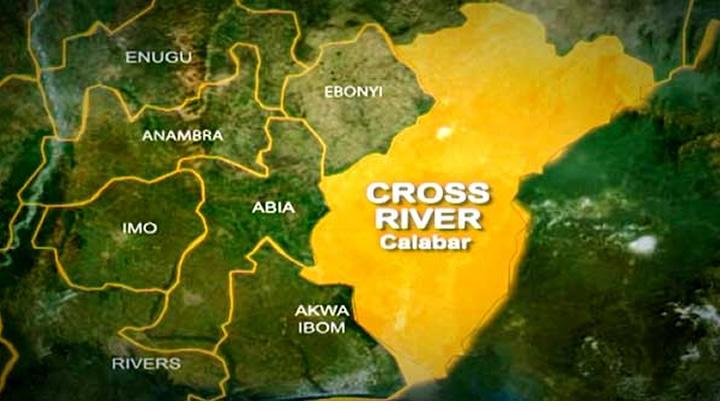Residents of Cross River State, particularly those in Calabar and neighboring regions, are growing increasingly alarmed as the frequency of incidents involving falling trees continues to escalate.
These occurrences, which often happen during heavy rainstorms or wind events, have resulted in widespread damage to properties, including vehicles, homes, and vital infrastructure. Local authorities, including the Calabar Urban Development Authority (CUDA), are facing increasing pressure from the public to address the issue and take necessary action to prevent further destruction.
One of the more recent and highly concerning incidents occurred in the Atimbo area of Calabar during a powerful rainstorm. A large tree suddenly collapsed onto a car parked on the roadside, causing substantial damage to the vehicle. Thankfully, the driver was not inside at the time, and there were no injuries reported. However, the incident served as a wake-up call to residents, who have since urged the local authorities to take proactive measures to prevent such events from happening again. Many are calling for the removal of aging or weakened trees along the city’s roads, as they pose a significant risk to both vehicles and pedestrians.
In another close call, a tree fell in the Eta Agbor area of Calabar in August 2024. The tree struck a car while a father and his young child were inside, though miraculously, neither of them was injured. The close proximity of this incident to the two individuals highlighted the very real dangers posed by poorly maintained trees, especially during severe weather conditions. Local residents are particularly concerned that these trees, weakened over time, are prone to toppling over during rainstorms and strong winds, endangering both people and property. Witnesses at the scene have called on city planners and urban officials to urgently assess and remove trees that are deemed hazardous, in an effort to ensure the safety of the public.
READ MORE: Nigeria sends 35 medical professionals to Tanzania for healthcare support.
While these incidents involving falling trees have caused significant damage, the situation in Cross River State is further exacerbated by the growing frequency of windstorms and heavy rainfalls that have been battering the region. In December 2024, a devastating windstorm tore through the Okubuchi community in the Boki Local Government Area, destroying more than 100 houses and leaving over 500 residents displaced. The storm’s destruction was so severe that the total property damage has been estimated to exceed N1.5 billion. Such catastrophic events have left many communities reeling and questioning the effectiveness of the state’s infrastructure and urban planning systems, which appear ill-equipped to handle such extreme weather.
In a particularly tragic incident in March 2025, a violent rainstorm in the Yala Local Government Area caused the collapse of over 20 houses, tragically resulting in the deaths of three local residents. This incident has intensified the urgency surrounding the need for comprehensive urban planning and effective disaster mitigation strategies in the region. It has become apparent that more must be done to protect citizens and property from the growing risks associated with extreme weather events, including the removal or reinforcement of weak or aging trees that pose a threat to public safety.
Residents and environmentalists alike have voiced their concerns over the lack of a structured approach to managing the health and stability of trees in urban areas. With climate change contributing to more frequent and intense weather events, the risks posed by falling trees and the subsequent destruction of property have reached a critical point. Many are calling for the government to establish a regular maintenance program that includes regular inspections of trees along roadways, in parks, and near residential areas. Proactive tree removal and pruning should be prioritized, especially in high-risk areas where storm damage is more likely.
In addition to these localized concerns, many residents are also advocating for better emergency response systems and more resilient infrastructure in the face of growing weather-related challenges. While immediate action to remove dangerous trees is essential, long-term strategies for climate adaptation, such as the development of storm-resistant structures and better urban planning, are crucial to ensuring the safety of residents in the future.
As the frequency of windstorms and rainstorms increases, and the number of incidents involving falling trees grows, it is clear that the government must act swiftly and decisively. Prioritizing the safety of citizens by addressing the risks posed by unstable trees, poor infrastructure, and extreme weather is vital for safeguarding the lives and property of residents across Cross River State. Without swift intervention, the region may continue to face devastating consequences, with further destruction and loss of life looming on the horizon.




